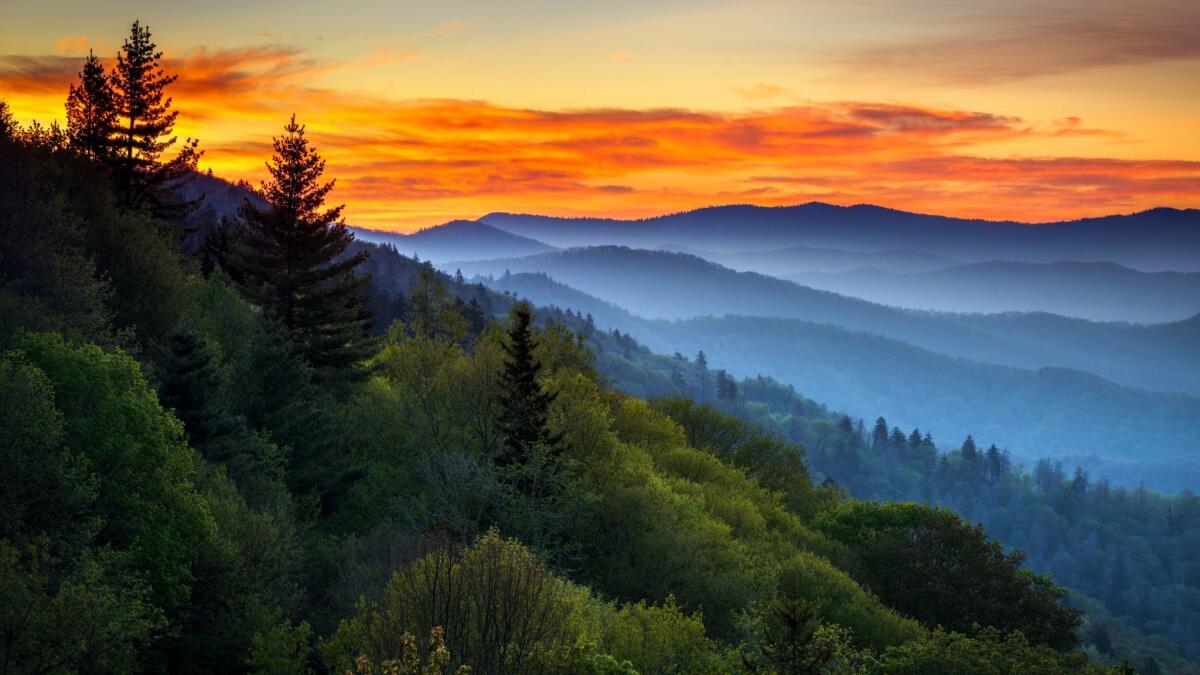Column: Thoughts from Dr. Joe: Camping in the Great Smoky Mountains reveals history of region’s inhabitants

It had been 48 years since I’d seen my buddy Fred Alexander. He was in Alpha Company 1st Platoon; I was in 4th. We found we weren’t as lean, but were twice as mean and still U.S. Marines.
If you read me last week, you know I was adventuring in the Great Smoky Mountains of western North Carolina. I wanted to experience the magic of this fabled land and understand how a sense of place can define the core of our humanity. I was an interloper and would experience Carolina’s grandeur from Fred’s eyes. Regardless, I’ve learned that if you ask questions, pay attention and listen reverently, you might develop a sixth sense.
Franklin, North Carolina sits in the Nantahala Range south of Great Smoky Mountain National Park. Nantahala is Cherokee for “land of the noonday sun.” The mountains are steep and explode upward, thus creating deep valleys that do not feel the sun’s rays till noon. The valley is sequestered; even the Civil War’s wrath had little effect on the community.
Join the conversation on Facebook »
We followed the Tuckasegee and Oconaluftee rivers into a land absorbed by 80 inches of rain a year. The Appalachians are the oldest mountains in the world and the Smokies are recognized as an International Biosphere Reserve.
The area’s original inhabitants, the Cherokee, remain proud stewards of a land settled thousands of years before contact with Europeans. Their civilization flourished until the discovery of gold, which led to Andrew Jackson in 1838 forcing the Cherokee to vacate their ancestral tribal lands.Their trek to Oklahoma, the Trail of Tears, remains a scar on the nation’s conscience.
We found camp in a majestic portion of the Great Smoky Mountains, Cades Cove. Searching for wood, I followed a trail deep into the heart of the hardwoods. Old growth forests abound with tall stands whose fallen leaves formed a deep carpet of humus and mold. I could smell the ancient soil packed by time and washed by centuries of rain.
I walked the silent trails searching for the Zen of the Great Smoky Mountains and the depth of Appalachian culture. What I sought was around the next bend. I found an old cabin preserved by the park service. In about 1822 it was built by John and Lucretia Oliver, who had arrived there a few years earlier and lived in a hut. The cabin is surrounded by forests that open to lush green fields. I found their farm. I sat on the cabin’s steps and stared into the fields and envisioned John Oliver, with children trailing behind, following a mule and plow. They’d work the land from first light to sunset. The magic of the land is the people!
Fred and I circled around the cove and explored each dwelling. He has a meticulous eye and noted the joints of the log cabins and the physics of rushing water, funneled through wooden troughs and smashing into a water wheel. The wheel turns the millstones and grinds corn into grits.
We explored 150-year-old churches. There were Bibles on the pulpits with notes from passersby lamenting the tragedies of life. We read the notes. I looked toward Fred, hoping to understand the mass of human misery.
“Life is hard,” he said.
We explored cemeteries and found the ancient tombstones of children who lived a mere day. They were called “son” or “daughter.” They never had a name. We paid our respects to a Southern soldier who had been killed in the Civil War and saw numerous markers of infants, children and adults who died in the 1918 influenza pandemic. I understood Fred’s comment. The essence of Buddhism is to find peace with the eventualities of living.
In 1969 Fred chronicled the history of Alpha Company. We spoke of the fate of the guys we served with. Perhaps we fared well, given the fact we’re still here, but I’m not sure. Regardless, we lost too many.
Like all adventures, I’m richer for it.
“Mission accomplished,” Fred said, before we parted ways.
JOE PUGLIA is a practicing counselor, a retired professor of education and a former officer in the Marines. Reach him at doctorjoe@ymail.com. Visit his website at doctorjoe.us.
